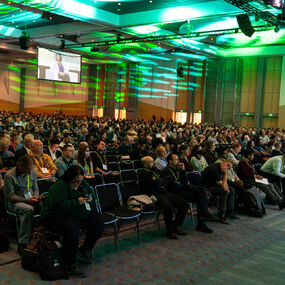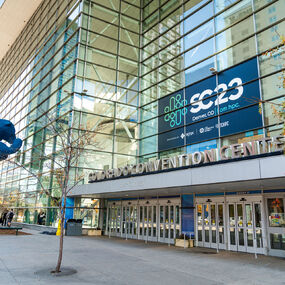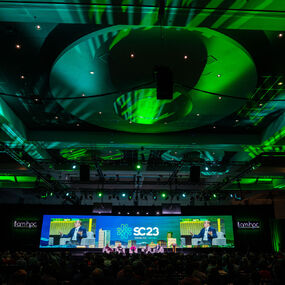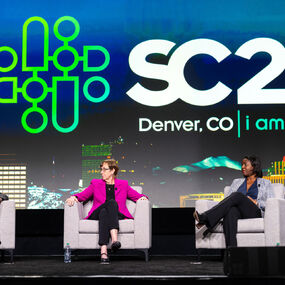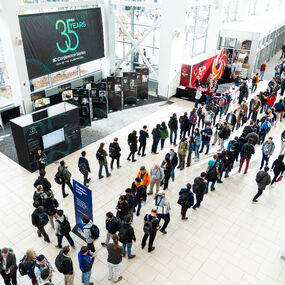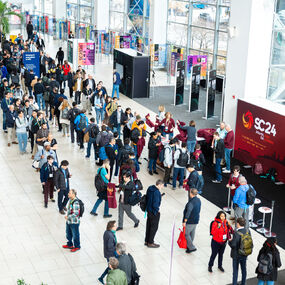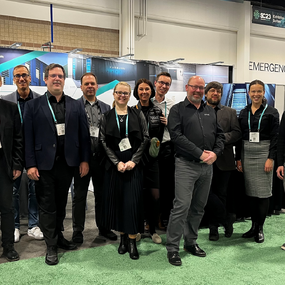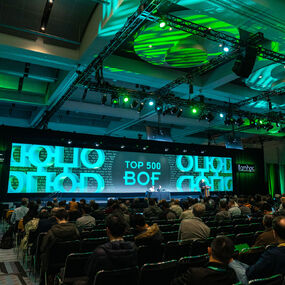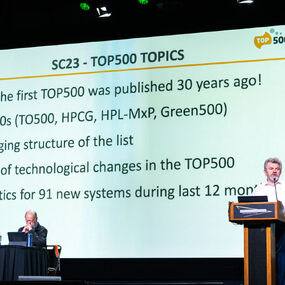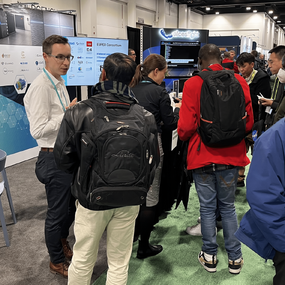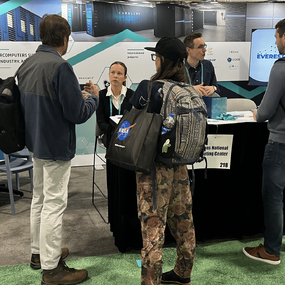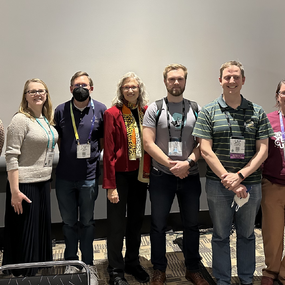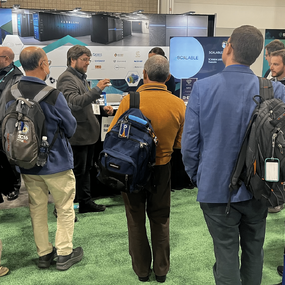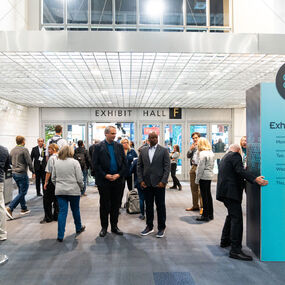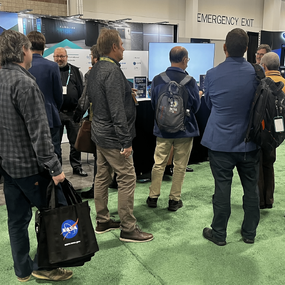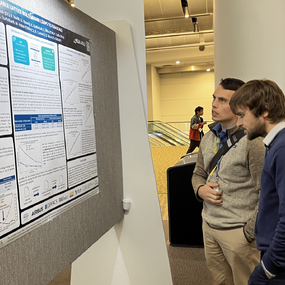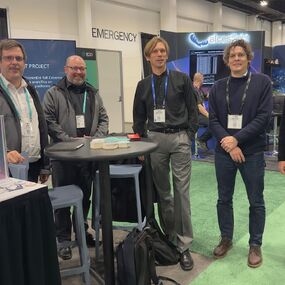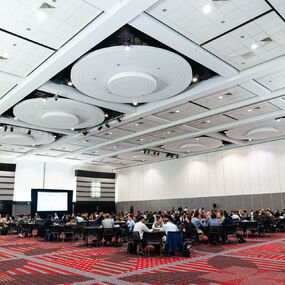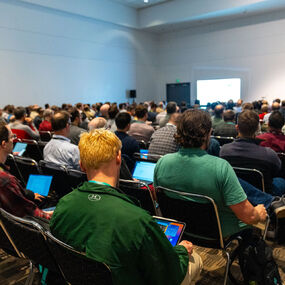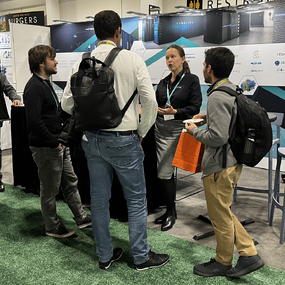A total of 14,148 HPC professionals and more than 400 exhibitors from around the world attended the 35th International Conference for High Performance Computing, Networking, Storage, and Analysis held on 12–17 November at the Colorado Convention Center in Denver, USA. Its theme was “I am HPC”. “This theme embodies our unwavering commitment to celebrating and championing all facets of High-Performance Computing. This encompasses not only the field itself and its profound contributions to society but, most importantly, the exceptional individuals who drive its progress – whether they are seasoned HPC veterans or enthusiastic newcomers,” said Dorian C. Arnold, SC23 General Chair.
The conference programme ran for six days and included lectures, workshops, discussion forums, and poster sessions, where over 70 research papers from around the world were presented. Radim Vavřík, Lubomír Říha, and Ondřej Vysocký from the Infrastructure Research Laboratory of IT4Innovations presented the project "SCALABLE - Lattice Boltzmann Leaps to Exascale" funded by the European Union Horizon 2020 programme. The project brings together major industrial and academic partners to improve the performance, scalability, and energy efficiency of industrial Computational Fluid Dynamics (CFD) software based on the Lattice-Boltzmann Method (LBM), which today represents a reliable alternative to conventional CFD approaches. The project has a direct impact on European industry while contributing to fundamental research. Read more here.
The conference included an exhibition with more than 400 exhibitors from HPC hardware and software manufacturers, universities, and research organizations from all over the world. IT4Innovations, as part of the Czech Republic's strategic research infrastructure, e-INFRA CZ, presented itself at its booth through the major national and international projects it is involved in.
“This year's edition was for the first time significantly influenced by developments in the field of quantum computing, which was the subject of a large part of the lectures and workshops, and there were many exhibitors from the quantum field who created the so-called Quantum Computing Island. I'm already looking forward to next year when we will install a quantum computer in our centre too,” said Vít Vondrák, Director of IT4Innovations.
On the occasion of the conference, the updated rankings of the fastest supercomputers (already 62nd edition of the TOP500 list) and the most energy-efficient ones – Green500 – were announced. Our Karolina (its accelerated part using NVIDIA graphics chips) is ranked 113th in the TOP500 and 25th in the Green500.

Five new or upgraded systems shook the top ten of the TOP500 ranking. Three EuroHPC JU systems, six American and one Japanese, are in the TOP10. The top spot still belongs to the American supercomputer Frontier at Oak Ridge National Laboratory, the only exascale system in the ranking. Aurora's performance was measured during the implementation of half of the planned final system. Once fully operational, Aurora is expected to surpass Frontier, with its performance reaching 2 EFlop/s. In third place was another new system called Eagle, installed in the Microsoft Azure cloud. This is the highest ranking ever achieved by a cloud system in the TOP500.
Pre-exascale supercomputers of EuroHPC JU took 5th place - Finnish LUMI in CSC, 6th place - Italian Leonardo in CINECA, and 8th place - Spanish MareNostrum 5 in Barcelona Supercomputing Center. EuroHPC JU's Petascale supercomputers, which include not only the Czech Karolina (#113) but also Luxembourg's Meluxina (#71), Slovenia's Vega (#198), and Bulgaria's Discoverer (#166), are among the top 200 supercomputers in the world in the TOP500 ranking.
At the SC conference, Thomas Lippert, Director of the Forschungszentrum Jülich, announced the details of the first exascale supercomputer of the EuroHPC JU, which will be installed in Jülich: “With over 90 exaflops at 8 bits, we will have perhaps the fastest AI supercomputer in the world for suitable AI applications!”
The SC23 conference in Denver represents a unique global gathering in supercomputing, where technology enthusiasts and scientists meet, but above all, where the doors to the future of computing are opened. "SC was once again full of interesting presentations, people, news, and innovations. I am glad that everything is back to normal. In terms of attendance, this year's event even surpassed last year's with more than 14,000 guests," added Filip Staněk from IT4Innovations' Supercomputing Services Department.

